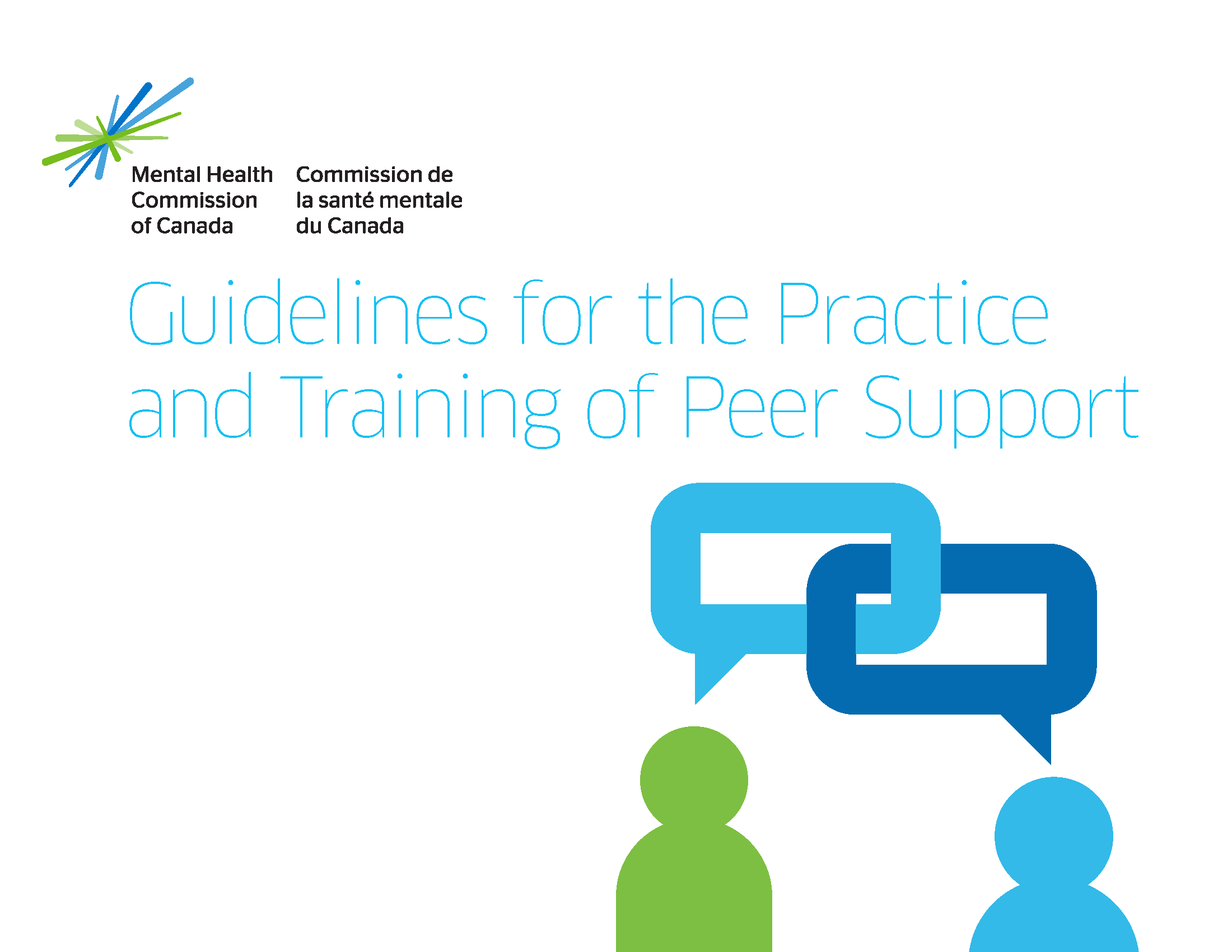If you are in distress, you can call or text 988 at any time. If it is an emergency, call 9-1-1 or go to your local emergency department.
Guidelines for the Practice and Training of Peer Support
Organization and Overview The introduction provides an overview of the background on peer support and outlines the purpose and preparation The document is comprised of two sets of guidelines. Part 1, Guidelines for the Practice of Peer Support, provides an overview of the elements for the practice of peer support, along with the guiding values, principles of practice, and skills and acquired abilities to be respected by all involved in peer support programs that offer a more formal or intentional form of peer support. Part 2, Guidelines for the Training of Peer Support, focuses on the training of peer support workers and outlines the skills and knowledge to be included in training programs designed to prepare someone to provide peer support. Purpose The two sets of Guidelines are intended to provide direction to policy makers, decision makers, program leaders and the Canadian public about the practice of peer support. The two sets of Guidelines offer elements for the practice of peer support and an outline of the underlying values, principles of practice, skills and abilities of supporters. We encourage prospective and practicing peer support workers to consider the set of Guidelines as a roadmap for personal development, and we encourage administrators to consult the set of Guidelines as they develop or enhance peer support programs within their organizations. Both sets of Guidelines focus on a structured form of peer support that fosters recovery. The peer support worker will have lived experience of a mental health challenge or illness, or is a family member or loved one of someone who does, is in a positive state of recovery and has developed an ability to provide peer support. The content of the Training Guidelines parallels the critical elements outlined in the Guidelines for the Practice of Peer Support. The two sets of Guidelines support Changing Direction, Changing Lives: The Mental Health Strategy for Canada, developed by the Mental Health Commission of Canada, and are meant to be consistent with its goals for achieving the best possible mental health and wellbeing for everyone. In particular, Goal Five of the national strategy calls for people to have “equitable and timely access to appropriate and effective programs, treatments, services, and supports that are seamlessly integrated around their needs.” This goal recognizes the full range of services and supports, such as peer support, which may provide benefits. Peer support can be a valuable component on the path of recovery for individuals with a mental health challenge or illness and for their family members/loved ones. Development Of The Guidelines The MHCC acts as a catalyst for improving the mental health system and changing the attitudes and behaviours of Canadians around mental health issues. Through its unique mandate from Health Canada, the MHCC brings together leaders and organizations from across the country to accelerate these changes. In September 2010, the MHCC released Making the Case for Peer Support. This report was based on a vast literature review, as well as input from many of Canada’s peers and peer support workers. The MHCC sought input from more than 600 people across the country in face-to-face consultations, and another 220 people through written and online surveys. The recommendations of this report included a call for the creation of various sets of guidelines to support the development of peer support within Canada. Making the Case for Peer Support is frequently referenced in these Guidelines as a source of more comprehensive background information. In 2010, the MHCC also launched the Peer Project to learn from the experience of peer support workers across Canada and to promote peer support as an essential component of mental health services. These Guidelines are an outcome of that project. The Peer Project hosted face-to-face consultations with peer support workers in seven Canadian cities, and one focus group with clinicians between August and December 2010. An online survey was then sent to more than 300 people who expressed an interest in the project, and their responses validated what had been noted during the consultations. In the summer of 2011, the Peer Project asked more than 300 participants to recommend experienced and respected peer support workers to represent Canada’s 10 provinces and three territories. As a result, a group was selected to engage in more detailed consultation and leadership. This peer support leadership group consists of 12 people from 10 provinces and territories. Other individuals were invited as advisors due to their areas of peer support expertise. The training guidelines were developed in consultation with a working group of experienced peer support trainers from across Canada who shared experiential knowledge and insights. The substance of the two sets of Guidelines grew out of the expertise gained from the face-to-face consultations and the online survey, and members of the peer support leadership group reviewed and enhanced these Guidelines at various stages throughout their development.
This resource was published in 2013. The data may be out of date.
of the Guidelines.
SHARE THIS PAGE
RELATED


